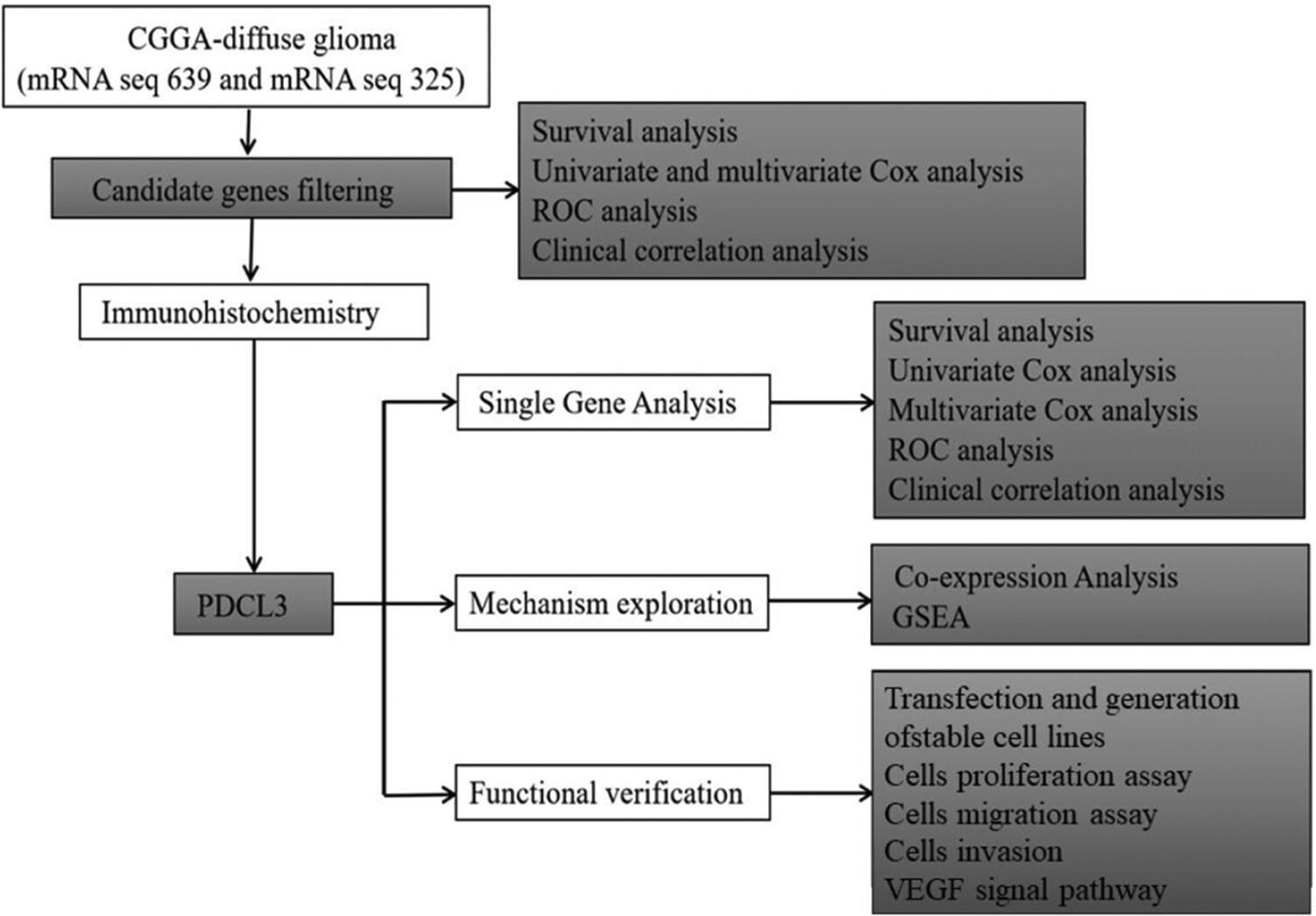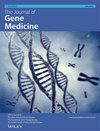PDCL3 as a prognostic factor and associated with the VEGF signaling pathway in glioma
Abstract
Background
New targeted drugs about angiogenesis could develop the treatment of glioma. We aimed to explore the role of phosducin like 3 (PDCL3) in angiogenesis of glioma.
Materials and Methods
RNA sequencing data and matched clinical data were downloaded from The Cancer Genome Atlas (TCGA) and Chinese Glioma Genome Atlas (CGGA) databases. To screen for the reliable genes with the filtering analyses, survival, multivariate Cox, receiver operating characteristic (ROC) curve filtration, and clinical correlation analyses were performed. The PDCL3 gene was validated by immunohistochemistry as a reliable gene for further analysis. Then we used the combined data of TCGA and Genotype-Tissue Expression from UCSC to detect the differential gene expression of PDCL3. Related signal pathways in glioma were explored by the gene set enrichment analysis and co-expression analysis. Lastly, we performed in vitro experiments to verify the gene functions and related mechanisms.
Results
The three filtering analyses and immunostaining indicated that the expression of PDCL3 in glioma tissues was higher than the normal tissues. Gene function analysis showed that PDCL3 activated the vascular endothelial growth factor (VEGF) signal pathway, and its mechanism was related to pathways in cancer, like NOD like receptor signaling pathway, the RIG-I like receptor signaling pathway and the P53 signaling pathway by MAPK/AKT in gliomas. This suggested that the proliferation, migration and invasion of glioma cells might be inhibited by the downregulation of PDCL3 in vitro, which may be related to the activation of VEGF signaling pathway.
Conclusion
We demonstrated that PDCL3 could function as an independent adverse prognostic marker in glioma. Its pro-oncogenic mechanism may be related to the VEGF signaling pathway.


 求助内容:
求助内容: 应助结果提醒方式:
应助结果提醒方式:


